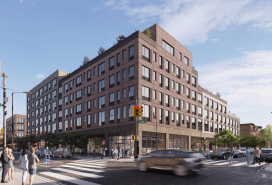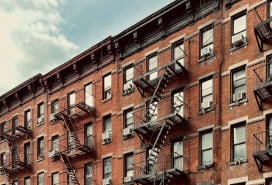Ask an Expert: How will downsized Wall Street bonuses affect NYC real estate?

Q. What impact are this year's significantly lower Wall Street bonuses expected to have on sales prices of co-ops or condos?
Will a particular segment of the market be more affected, like family apartments versus starter apartments, or Manhattan versus Brooklyn?
A. "There is a lot of uncertainty about a lot of things and one of them is whether Wall Street bonuses will be 'significantly lower' this year," observes expert appraiser Jonathan Miller of Miller Samuel in Manhattan, noting that Morgan Stanley announced layoffs--"the ultimate lower bonus"--on Friday.
"The skeptic in me feels that the industry is over selling this message to the media in order to lower expectations of employees who are anticipating decent sized bonuses this year," says Miller. "The pragmatic side of me focuses on the declining emphasis on bonuses. Their use still represents a large portion of compensation on Wall Street, but its share of compensation has been easing as more regulatory overlay enters the securities industry post-credit crunch." (Think Dodd-Frank, he says.).
And while there was a study released this fall indicating that bonuses would be down 20% to 30%, says Miller, it's important to keep the percentages in perspective: Bonuses are coming down from a high level, and bonuses average less than 50% of total compensation and perhaps closer to 40%.
"A 20% to 30% bonus drop would translate to roughly a 10% decline in total compensation from the 4th highest bonus total in Wall Street history last year," says Miller.
So what does all this mean for local real estate?
"While we should always be concerned about our primary regional economic engine anytime there is an expected decline in compensation, the amount of dollars flowing through the housing market from Wall Street next year may not be dramatically less than in each of the past several years," says Miller. "Still, the situation is not helpful to a fragile NYC housing market that flirts with stability."
If the decline in Wall Street compensation, whether bonus or salary, turns out to be more pronounced, says Miller, "co-ops are somewhat more exposed than condos, because of the positive influence from foreign buyers' demand for condos."
Even in the event of a severe bonus drought, says Miller, "I would anticipate continued strength in the luxury market north of $3 million due to record corporate profits in Fortune 500 companies boosting pay of high level execs and foreign buyers seeking to take advantage of the stronger buying power of their currencies as compared to the weak US dollar."
Manhattan and Brooklyn--the two boroughs that have shown the most housing market strength in NYC for 2011--will probably continue to be joined at the hip, predicts Miller.
"I would anticipate some stability in the entry level market as mortgage rates remain at record lows helping drive demand," he says. "With demand accounted for at the low and high end of the market, I think the greater challenge may be seen in the middle of the housing market, as the middle class consumer still can't catch a break."
Trouble at home? Get your NYC apartment-dweller questions answered by an expert! Send us your questions.



























